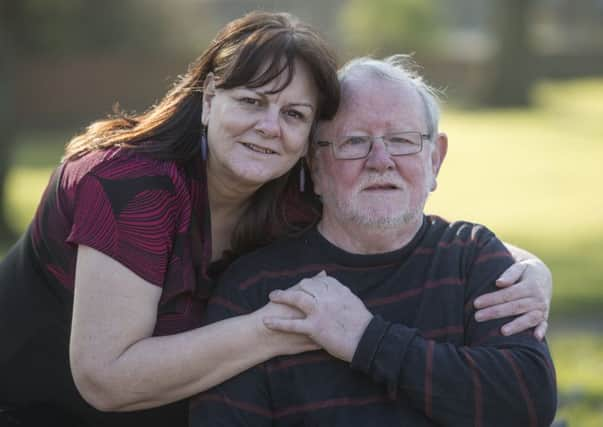Janice Preston: Together we can see off cancer poverty


Ask most people to name the side effects of cancer and its treatments and they’d probably be able to reel off a few. Hair loss. Fatigue. Nausea. How about poverty? Probably not one that would trip off many tongues. Not unless they or someone close to them has been through cancer.
For many people cancer mounts a two-pronged attack on their finances. It stops them working which leads to a vastly reduced income. At the same time it brings increased costs. Fuel bills shoot up as cancer patients struggle to stay warm after treatment which leaves them very vulnerable to the cold. The cost of travelling to regular hospital appointments also add up.
Advertisement
Hide AdAdvertisement
Hide AdFor those who had been working before their diagnosis these costs come at a time they are already struggling to cope on sick pay or benefits which are a fraction of their previous income. Those who were already on benefits can find the increased costs tip them further into poverty.
Macmillan Cancer Support’s research has found that cancer costs 80 per cent of cancer patients in Scotland £420 every month. That’s the cost of an average mortgage payment and leads to cancer patients struggling to cope.
Previously Macmillan’s research has found that a shocking 30 per cent of cancer patients went without keeping their home adequately warm in winter because they couldn’t afford it. Around one in ten missed payments on their council tax, credit card, mortgage or rent.
This means instead of focusing on their health, many patients must fight through nausea and extreme fatigue to try to get state benefits. They have to negotiate with their mortgage company or landlord so they don’t lose their home and talk to their heating supplier about why they can’t pay their bill but desperately need heat. Fears about homelessness and debt-collectors are piled on top of fears about health and even death as cancer patients struggle to survive both cancer and cancer poverty.
The number of people living with cancer is increasing year on year, from 190,000 in 2010 to to an estimated 260,000 by 2020.
Of course, it’s good news more people are surviving cancer, but we need to make sure they get the support they need to have a life worth living, not one marred by debt, homelessness and a constant nagging worry about paying bills.
We don’t want to paint a completely bleak picture. Macmillan in Scotland has been tackling this issue and since 2003 working with partners including local councils, the Scottish Government, the NHS and other charities, to put in place 22 specialist benefits advice services across Scotland, including in the five cancer centres.
These services help patients claim the money they are entitled to and have so far put more than £285 million pounds in the pockets of 112,000 cancer patients and carers. That’s a financial gain of £2500 for each person and, for a cancer patient or carer struggling to pay their rent or mortgage, it can make all the difference.
Advertisement
Hide AdAdvertisement
Hide AdMacmillan is proud to have been able to be there for so many people who needed help, but there is still more to do. The truth is that too many people are missing out on benefits they desperately need simply because they don’t know they’re entitled to them or that help is available to help them claim.
We regularly hear about people who struggle with money problems for years, losing their home or going back to work before they should, when a simple phone call to one of our benefits services could have helped them. This must change. We want every cancer patient to be told about the financial help, and the emotional and practical help, available to them as soon as possible after their diagnosis.
The cancer plan published by the Scottish Government a few weeks ago promises every cancer patient will be offered a holistic needs assessment, which includes an assessment of their financial needs. This is great news and is something Macmillan has been campaigning for, for many years. What we now need is for every political party in Scotland pledge that if they get into power after the May elections they will follow through on this promise as a matter of urgency so no cancer patient in Scotland faces the financial impact of cancer alone.
• Janice Preston, head of services for Macmillan Cancer Support in Scotland